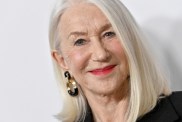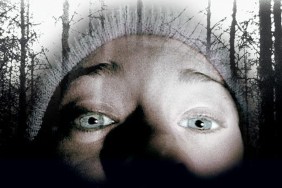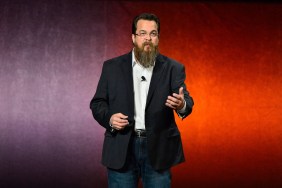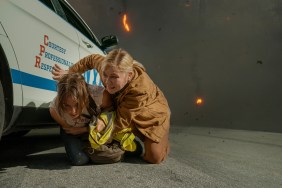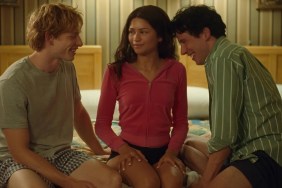500 people die a day in Darfur. 2.5 million have been displaced. More than 400,000 people have died since 2003 according to StopGenocideNow.org.
The killings continue.
Why, you ask?
Director Paul Freedman’s new HBO documentary, “Sand and Sorrow,” explains the genocide with the help of A-list actor and activist George Clooney, who narrates the movie.
The film not only breaks down the convolution of the situation, but also elucidates as to why it’s incredibly ill-fated for other countries if the genocide is not stopped.
One frightening example Freedman gives is how terrorist Bin Laden has approached the millions of people who have been displaced attempting to persuade them to fight for him.
ComingSoon.net talked to Freedman exclusively about what’s currently happening in the Sudan.
Comingsoon.net: Thank you for making a movie like this. Do you think most people still haven’t heard about Darfur?
Paul Freedman: When I was making the film, which was a couple of years ago now, I was sitting next to a guy on the plane… I told him I’d just been in Darfur and he said, “Isn’t that a Club Med?” Most people have heard about it now, but not everybody… Ask people what they’ve heard and they’ve probably heard about the Chinese government and they’ve heard about the Arab government, but they don’t really understand the situation on the ground which is very complex.
CS: It is very complex, so can you break it down as precisely as possible and explain how the genocide started and how it’s escalated to the point it has today?
Freedman: You can’t get into any discussion about this without pointing out the government in Sudan is a criminal regime period. With that and the jumping off point, you can talk about and understand the conflict and understand what’s happened there, but first and foremost, we need to understand that this regime, the Khartoum, are a bunch of criminals. Darfur, like Sudan, has been a neglected part of the country. It always has been. Up until the late ’90s the whole country was pretty poor, but by the mid to late ’90s Sudan became [a country with] oil money. It’s a huge oil export now and there’s a lot of money in that country. Even after the oil money came in, other regions away from the center, the Khartoum particularly, steal the effects of the newfound wealth. They were still disenfranchised, they still didn’t have hospitals, they didn’t have roads, they didn’t have schools, they didn’t have anything. They had always been some ethic tension in the area between the non-Arabs and the Arabs as they like to call themselves. By 2000, one of these groups of people picked up arms against the government and demanded roads, schools, and a political voice in government. The same thing had happened in the south 20 years earlier. The government responded to that insurgency with brutal, brutal, brutal campaign of bombing, of ethic cleansing, of rape, of murder. What they do is hire Arab militias to go and burn these villages. That’s where the term Janjaweed came from, not from Darfur, it came from the war in the south. They would bomb these villages, they would throw air conditioners, car shafting, they would throw 55 gallons of fuel out. It was a really cruel way to respond to an insurgency. They wouldn’t go after the rebels. They would go after the rebels’ families. It’s exactly what’s happened in Darfur. Darfur is a much smaller conflict than what happened in the south. The numbers in the south are massive. As many as two million have died. Four million have been displaced. These numbers are far greater than Darfur. Essentially what happened in Darfur is that a group of people took up arms to the government and the government cut them down brutally and criminally unlike Rwanda and the Holocaust where Tutsis were killed because they were Tutsis and Jews were killed because they were Jews constituting the genocide. This genocide is more of a counter to an insurgency. People are being killed because they took up arms against the government and they just happen to be poor. That’s essentially the dynamic of it.
CS: It sounds like they took up arms against the government as a way to stand up for themselves because they wanted human rights?
Freedman: More than just rights. If you go to Darfur today, you’ll see that there’s nothing there. There’s no roads, very few roads and they are unpaved. There are no communications, there’s very few hospitals. It’s a really, really harsh place to live. Now that said, the people there are quite happy there with their lives. They are extraordinary poor, but they are vibrant vital society. They have survived in the harshest place on the planet for a 1,000 years and they’re very good at it. It’s quite a thing to see. People who have nothing have been swept away into the IDP (Internally Displaced) camps. They’ve melted into the sand literally.

CS: When was the first time you heard about the genocide in Darfur?
Freedman: That is the whole genesis of this for me. I had done another documentary about Rwanda, the genocide that had happened and the aftermath. I finished that in late 2004 which was sort of the 10 year anniversary of the Rwanda genocide. I remember talking to people, experts, and people were beginning to say to me in between questions, “This is Darfur. This is happening again. People are being killed in big numbers.” I heard whispers coming out and it was the beginning of the conflict. It was early in the conflict. After getting my head spun around by going to Rwanda and really delving into what’s happened there 10 years after the fact, I really came out of that project feeling like I was a bystander in 1994 and I didn’t do anything. Like everybody else in America I thought, “What a terrible thing happened in Rwanda.” I went on with my nice little safe life. When I realized that something was actually going on in Darfur, I decided I needed to do this. I started hearing about this at the end of my last project and jumped right in.
CS: How did George Clooney come on board to the project?
Freedman: When I first started making it, I didn’t realize I was going to use a narrator. I was hoping I could tell the history by using some experts. I wasn’t really sure how creatively I was going to make the film. When it became apparent that I needed a voice to walk through a lot of these complexities I realized that I needed a narrator. I feel like you can look around at all the voices, there are a couple people in the world today who are in this business who are really active and are doing something. When I went to shoot the sequence in Washington, D.C. towards the end of the film at the rally, I went backstage in sort of the press tent, I saw George Clooney there. I went up to him and he was extraordinarily gracious. He stopped and was of course surrounded by everybody. I said, “I returned from Darfur a couple of months ago” and he sort of looked at me and said, “Wow, you did?” He had just returned from Chad with his dad where he had talked to refuges there along the border. He said, “We couldn’t get into Darfur. We stood there and looked across the border.” I know he was extraordinarily moved by what was happening there. A few months later when I was finishing the film, I thought I do need a narrator. What a natural. This is the guy who needs to do it. I think the way he comes off, it’s almost like he has his arm around you and he sort of gently explaining what’s going on in the film. I am very lucky that he did this for me. He’s the real deal. He didn’t have to go to Chad. Nobody in Chad, none of those rebels know who George Clooney is or what or care. He put himself in danger and he didn’t have to do that. I have profound respect for him. Thank God for the George Clooney’s in the world.
CS: One of the things that really struck me in the film was when a young high school girl, who is trying to bring more awareness to the tragedy, said if you’re ignorant then you can turn your back and not do anything, but once you know about what’s happening and you don’t do anything about it then you have to live with it.
Freedman: When young people like Riley [McDonald] said in the film, she said, “Now you know. Are you going to do something about it?” It’s hard to look at the situation whether it’s Rwanda or what’s happening in the Democratic Republic of the Congo right now, or Northern Uganda or Darfur, it’s hard to assimilate that information and not go away with it and be disturbed. Hopefully there are a percentage of people who feel disturbed and might pick up the phone, write a letter, write a check, or do something and not be a bystander. It will help propel the momentum to get these people make peace and a lot of that relies on our government pressuring other countries to pressure the Sudanese government. The more people find this voice, this chorus, the sooner that will happen. But unfortunately, it’s not enough yet. What Riley said resonated with me. “Now you know. Are you going to do something about it?”
CS: She was such an insightful young girl.
Freedman: The best thing about people that age and teenagers, when they’re listening to you and you explain something like this to them, about how the government is slaughtering this other group of people for whatever reasons, young people have the correct moral response. They say, “How could they? Why would they do that?” Grownups like myself have a little more jaded look at it. Of course there is oil and politics and a lot of things factor in before we can make a reaction. A young person has the correct moral response. “How could they let that happen? Why aren’t we doing anything about this? There’s children being killed. There’s mommies and daddies being killed.” If we could all hang on to that, this world would be a much gentler place. Unfortunately, we don’t hang on to that and we lose it somewhere.
CS: Another thing that really got me in the film was the graphic images. Do you think people will see that and it will make them want to do something to help?
Freedman: When I put this thing together and sat in the editing room and I played sequences over and over again, I had so much material that I got from the military observers in Darfur, all these photographs, all those bodies by the way are non-combative. There’s no soldiers that are rebels there. Those are all civilians… How much can people take before they turn away? This is not Africa. We do not see this stuff. We need to understand that it really hurts when a mother walks 80 kilometers with her only remaining child after having to try to pull her other three children out of their burning house. It hurts to sit and listen to that. If you can show a disturbing image, hopefully you can ram that point home. This is a mom. This is a mom who wants her children to grow up happy and healthy and will do anything to have her child safe and warm, well fed and not get sick. It untrivializes it when you can show images I think, well I hope. I hope it rams the point home that this is not a movie. This is going on now. This movie has been done for eight or nine months, now unfortunately it’s still relevant. More relevant now than it ever has been because it’s still going on.

CS: It’s one thing to hear about what’s happening, but to actually go and see it for yourself must have been a very different experience.
Freedman: I wasn’t nervous when I got there, but I was nervous before I left… When you get into the camps and you start walking in the sea of humanity of these people who are just sitting there living under little sticks, it takes your breath away. You wonder how far we’ve really come. But these people are still living with a smile. They’re doing their best to keep their children occupied and trying to get them into makeshift schools, trying to cook up their 1500 calories a day in the best way possible, there’s no place for them to go and there’s nothing for them to do. Some of them work on farms if they can get to them. These people grow tomatoes the size of softballs. It’s impressive. They’ve been killed in huge numbers and it is a little weird to go there while it’s happening as opposed to arriving 10 years later.
CS: What do you want people to learn about this documentary?
Freedman: I hope they understand the complexities of the conflict and that if it’s left unsolved, it’s going to fester and what’s going to happen is what [Gerard] Prunier says at the end of the film. “No one knows what’s going to happen. In 20 years time these people could still be here in these camps.” That is a profoundly eerie thought. That three million angry displaced conservative Muslims will be pent up in these camps raising their families. Mr. Bin Laden has already been trying to rally these people. Far beyond a humanitarian priority is on the horizon what’s going to happen to these people? Making peace doesn’t just solve this. We’ve got to get them back home. We’ve got to figure out a way to bring justice to the people who did it. You have to compensate the people who have survived. I hope people understand that. This isn’t about a bunch of people getting killed. It has a far reaching complex ending it to.
CS: Bin Laden has approached the displaced people trying to entice them to become extremists?
Freedman: He’s reached out a couple of times and said, “When the UN gets there, you must kill them.” He’s reaching out. He’s sees a ripe mass constituency of his own there in three million pissed off people who are generally peaceful practitioners of their Islam faith. They are really, really peaceful wonderful people. Certainly not the Janjaweed tribes, but for the most part, these are farmers. They are gentle souls.
CS: How can someone help?
Freedman: I would suggest going onto the numerous sites like Darfur.org and GenocideIntervention.net. You can google genocide and you can come up with all of these marvelous groups that have been started in the last several years who have on their websites easy ways to click on form letters to Senators and Congressional people. Also how to pressure your government and what to do if you want to write a check and where to write it to. They are incredibly helpful for people who want to help, but have no idea on how to help. The important thing is to pressure our representatives. Pressure our government to use their influence to get this done and that involves bringing in the Chinese and some of the Middle East countries. Get in and pressure the government of the Sudan to allow the UN force in there.
“Sand and Sorrow” premieres on HBO at 8pm ET/PT on Thursday, December 6. Visit the official site for more information.


